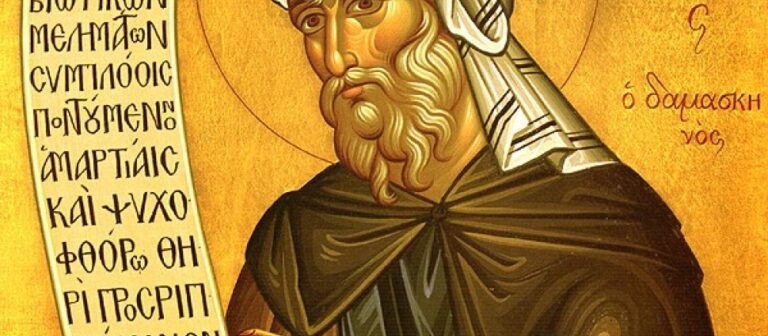
Majoring in the Minors: Malachi
If we fail to see to see the glory of Christ predicted in the Old Testament and then unveiled in the New Testament, we have failed to truly understand God’s Word. The Bible is replete with proclamations of the glory of Jesus Christ, and even the minor prophetic books declare the majesty of this Messiah who was to come to save His people from their sins.
The book of Malachi contains some of the most famous prophecies about the coming Messiah, and his forerunner (John the Baptist). It is, in our English Bibles, the last book of the Old Testament, and is typically dated around the mid-fourth century B.C., placing it right alongside the time of Ezra, Nehemiah, and the restoration of both the Jews to the land and the Temple in Jerusalem.
Both its date of composition and placement in our Bibles today reminds us that the Old Testament ends with the people of God still eagerly anticipating the coming Messiah to save them from their sins. Between Malachi and Matthew, there was no prophetic voice in the land, and Malachi’s prophecies of a coming Messiah and His forerunner echoed in the Jews’ minds, like shouts in a dark cave, as they longed for His coming.
In chapter 1, God makes plain His detestation for the sinful practices of the Jews, who were consumed by greed and refused to give God the offerings He was plainly due according to His Law. In fact, the Jews had even begun to question God’s love for them, and so He begins the prophecy through Malachi by contrasting His unconditional, electing love for Jacob with His rejecting hatred for Esau. He had proved His love to the Jews by restoring them to the land after their Babylonian exile and captivity, whereas He had actually “laid waste [Edom’s] hill country and left his heritage to jackals of the desert” (1:3). Yet, the Jews had withheld honor from the Lord (vs. 6) and despised His name by offering polluted offerings before Him (vs. 7). But, despite their sins, God explains that He will, without doubt, glorify His name among the nations: “For from the rising of the sun to its setting my name will be great among the nations, and in every place incense will be offered to my name, and a pure offering. For my name will be great among the nations, says the Lord of hosts” (vs. 11). How would the Lord bring this to pass, though?
The answer is not immediately obvious. Almost the entirety of chapter 2 outlines the many ways in which the Jews had rebelled against God, and the righteous retaliation and retribution God would enact upon the people because of their sinful ways. Yet, the careful reader notes glimpses of hope throughout, as while God promises to punish and shame the sinful priests and their offspring (vs. 3), He also promises to keep His covenants (vs. 4). The Jewish men would be punished for their sinfulness in their marriages, for they had failed to keep covenant with their wives (vs. 14), and failed to produce the godly offspring the Lord had longed for (vs. 15). But their faithlessness in marriage is a contrasting point with the Lord—they may have acted faithlessly, failing to keep covenant, but the Lord would never do such a thing. He is always faithful to keep His covenants (vs. 16).
Chapter 2 ends with the people asking, “Where is the God of justice?” (vs. 18). God immediately answers, in chapter 3, that He will come, but not before sending His messenger before Himself. This recalls Isaiah’s prophecy of a messenger preparing the way of the Lord (Is. 40:3). In the New Testament, Matthew 3:2 tells us that John the Baptist is the fulfillment of this prophecy, being “The voice of one crying in the wilderness: ‘Prepare the way of the Lord; make his paths straight.’” John the Baptist would not only prepare the way for Jesus but would also break the four hundred years of prophetic silence, speaking the Word of God to the people once more.
But, even more glorious still, would be the “messenger of the covenant.” As Malachi wrote, “And the Lord whom you seek will suddenly come to his temple; and the messenger of the covenant in whom you delight, behold, he is coming, says the Lord of hosts” (3:1). So, the Lord Himself declares that He is synonymous with the messenger of the covenant. He is the One in whom the people delight, who would come to His temple.
In one sense, His coming would bring both salvation and damnation, and who could endure His arrival (vs. 3)? Yet, “He will sit as a refiner and purifier of silver, and he will purify the sons of Levi and refine them like gold and silver, and they will bring offerings in righteousness to the Lord” (vs. 3-4). This messenger of the covenant would purify His people and make them righteous, which is ultimately what Jesus accomplished for all who trust in Him through faith in His death, burial, and resurrection (2 Cor. 5:21).
If He was not the messenger of the covenant, keeping faith with His own elect, then none would be able to stand before Him. A future day of final judgment is still to come when Christ will take the wicked and burn them in an oven like stubble (4:1). Yet, the Lord also promised, “for you who fear my name, the sun of righteousness shall rise with healing in its wings. You shall go out leaping like calves from the stall” (vs. 2). Jesus saves and revives His elect.
What would be the sign, then, of His approach? Malachi ends by once more pointing to the forerunner of the Messiah: “Behold, I will send you Elijah the prophet before the great and awesome day of the Lord comes. And he will turn the hearts of fathers to their children and the hearts of children to their fathers, lest I come and strike the land with a decree of utter destruction.” Having the full revelation of Scripture means we can know, beyond all doubt, that John the Baptist was the forerunner and Jesus is the messenger of the covenant, the sun of righteousness, the judge of the wicked, and the Savior of sinners.
Jacob Tanner is pastor of Mt. Bethel Church of McClure in Central Pennsylvania. He has spent time as a reporter, journalist, and editor, and has written for various Christian websites. He and his wife, Kayla, have one son, Josiah. He is currently completing his M.Div. through Midwestern Baptist Theological Seminary.
























